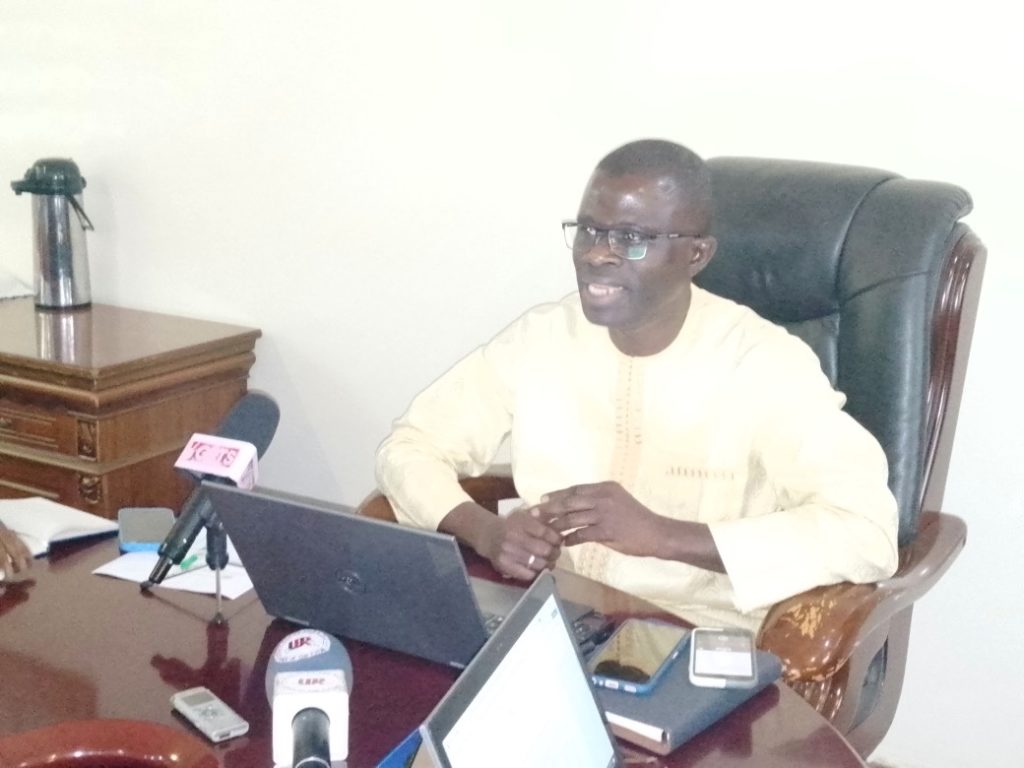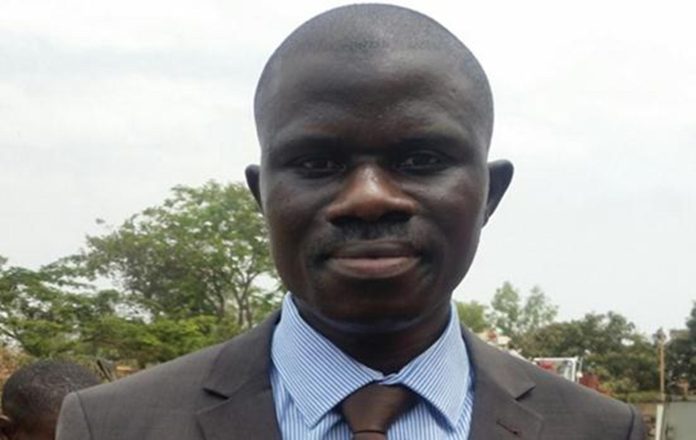
By Landing Ceesay
The Managing Director of the National Water and Electricity Company (NAWEC), Mr. Nani Juwara said they want to assure Gambians of quality energy supply which is why the electricity and water tariffs have been increased.
“We have seen how all costs have gone up in all aspects. Raw material costs have significantly gone up which has a direct impact on our spare parts. Fuel price is the major cost driver and we have seen a significant jump. So it is reasonable that we increase our tariffs so that at least we can continue to assure Gambians of a reliable electricity supply. Is better to pay for the cost to have reliable and continuous supply than to pay for something eventually the utility would not be able to maintain operations and we go back to those dark days of blackouts. That should be history in this country.
“We are all aware of the realities of the current market prices, that things are not the same all over the world globally. We have seen unprecedented changes or increases in prices and cost of materials particularly in the case of NAWEC. Our major cost drivers, which are the fuel, lubricant, spare parts, and other materials have been unprecedented increases in cost, especially in the last two years. which is a result of the impact of Covid 19 and also the recent Russian-Ukrainian war. We have seen a huge jump in almost all our major cost drivers, particularly for fuel,” Mr. Juwara told the Journalists at a press conference.
Mr. Juwara said NAWEC has been struggling and trying to manage the situation but it is right now impossible to continue on the same tariff If they want to sustain operations.
Mr. Juwara further told the Journalists that they also have to face the reality just like all other countries in the world. He said the energy situation in the world today is no secret.
The NAWEC MD said what his institution is facing is a global crisis when it comes to the energy sector. He said the cost of inputs has jumped significantly beyond control.
“These are factors that are beyond our control, especially, in developing countries, especially in the Gambia. Most of our inputs are coming from outside and we have seen immediately after the start of the Russia-Ukraine war how prices have gone up. We have all seen how much we are paying at our various petrol stations in the country for pump prices.
“Before now, the tariff was fixed in 2015. NAWEC used to buy fuel per litre almost D36 to D40. We have seen now that we are buying a pump price of almost D78 per litre that’s a huge jump. equally, When the tariff was set in 2015, we used to buy heavy fuel per metric tonne for about $444 per metric tonne. This has jumped from $444 per metric tonne to over $650 per metric tonne, especially on average after the start of the Russian-Ukrainian war,” Mr. Juwara said.
Mr. Juwara said they have also seen a huge jump in the cost of other materials, like spare parts and the inflation repressor in terms of foreign exchange losses.
Mr. Juwara said when the price was fixed for them in 2015 $1 is about D47 or D48, but they are now buying the US dollar in the market on average about D62.96 or D62.80 to $1.
Mr. Juwara said on a monthly basis, NAWEC is making a “huge losses” in terms of Foreign exchange and it has really compounded their situation.
He said there is no way, if they have to sustain their operations or assure Gambians of reliable, and quality electricity supply going forward.
“So it is through NAWEC’s efforts and the efforts of the government and our regulator that we have determined through consultations. This has been done with other stakeholders just to make sure that the tariffs that we are going to determine are a reflection of the current situation of the market. This decision has been packing we have made some slight increases in both water and electricity in terms of the tariff. This decision had to be taken because there is no way we can sustain our operations with the tariff that has been determined since 2015.
“I think we are currently the last, if I’m not mistaken, to have an increase our tariffs because that’s the reality. We shouldn’t be in any illusion. We are not alone in this case, this is a global issue. Europeans are facing similar issues, Americans are facing similar issues and the costs of energy today are very, very, very high all over the world. It is as a result of the inputs that we use,” he said.
On the issue of renewable energy, Mr. Juwara told Journalists that they are investing heavily in renewable energy because that’s the only way they can sustain their operations.
“Heavy dependence on fossil fuels will not solve our problems. That means we will continue to struggle with high energy costs If we don’t take those measures,” he said.
NAWEC MD made these remarks at a press briefing organized by his institution to officially announced the increment of water and electricity tariffs.
NAWEC has increased the domestic water tariff of 0-10 cubic meters from D5.50 to D6.48.
The domestic water tariff of 11-25 cubic meters from D12.00 to D14.15. For 26 to 40 cubic meters, NAWEC has increased it from D16.00 to D18.86. While the balance has been increased from D20.00 to 23.53.
NAWEC has increased the tariff for the commercial from D24.20 to D28.50. The tariff for hotels, clubs and industries has been increased from D34.00 to D40.00.
The agriculture sector tariff has been increased from D12.00 to D14.15.
The water tariff for the Area Councils has been increased from D16.79 to D19.79. The water tariff for the Central government has also been increased from D16.79 to D19.79.
The sewage per cubic meter of water consumed by domestic and local authorities has been increased to D5.00. For all other users have been increased to D15.00.
Increment in the electricity tariff, NAWEC has increased the domestic credit electricity per kWh of 0-300kwh from D10.15 to D13.85.
The electricity tariff of 301-600kwh has been increased from D10.49 to D14.06. The tariff of 601-1000 has been increased from D10.77 to D14.43. While the balance has been increased from D11.54 to D15.46.
The electricity tariff for commercial has been increased from D10.90 to D14.90. The electricity tariff for hotels, clubs, and industries has been increased from D11.65 to D15.90.
The agriculture sector has also increased from D10.14 to D13.89. The tariff of the Area Councils has been increased from D10.90 to D16.20. While the tariff of the central government has been increased from D10.90 to D16.20.
NAWEC has also increased the prepayment of electricity tariff per kWh for domestic users from D10.14 to D13.85.
The commercial tariff of prepayment electricity tariff per kWh has been increased from D10.90 to D14.90.
The prepayment of electricity tariff per kWh for hotels, clubs, and industries has been increased from D11.65 to D15.90.
The prepayment of electricity tariff per kWh for the agriculture sector has also been increased from D10.14 to D13.89.
The prepayment of electricity tariff per kWh for Area Councils has been increased from D10.90 to D16.20. While for the central government, it has been increased from D10.90 to D16.20.
The new tariffs announced by NAWEC would be effective from April 10, 2023.


